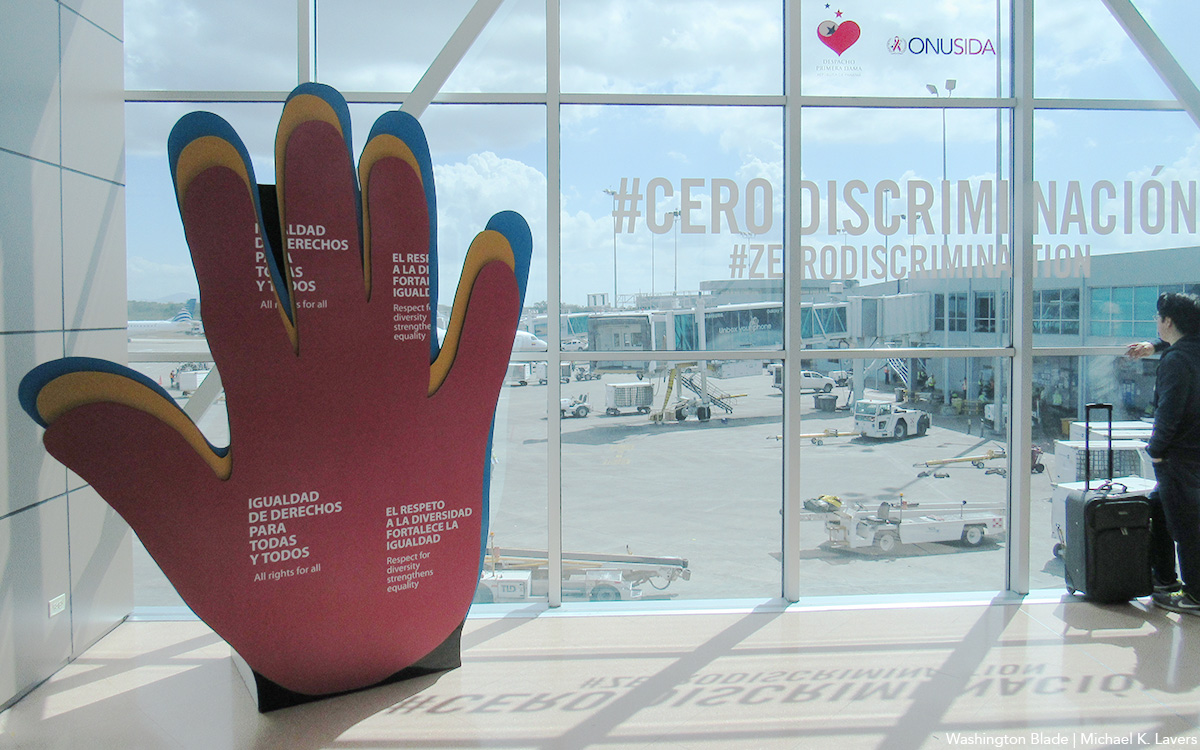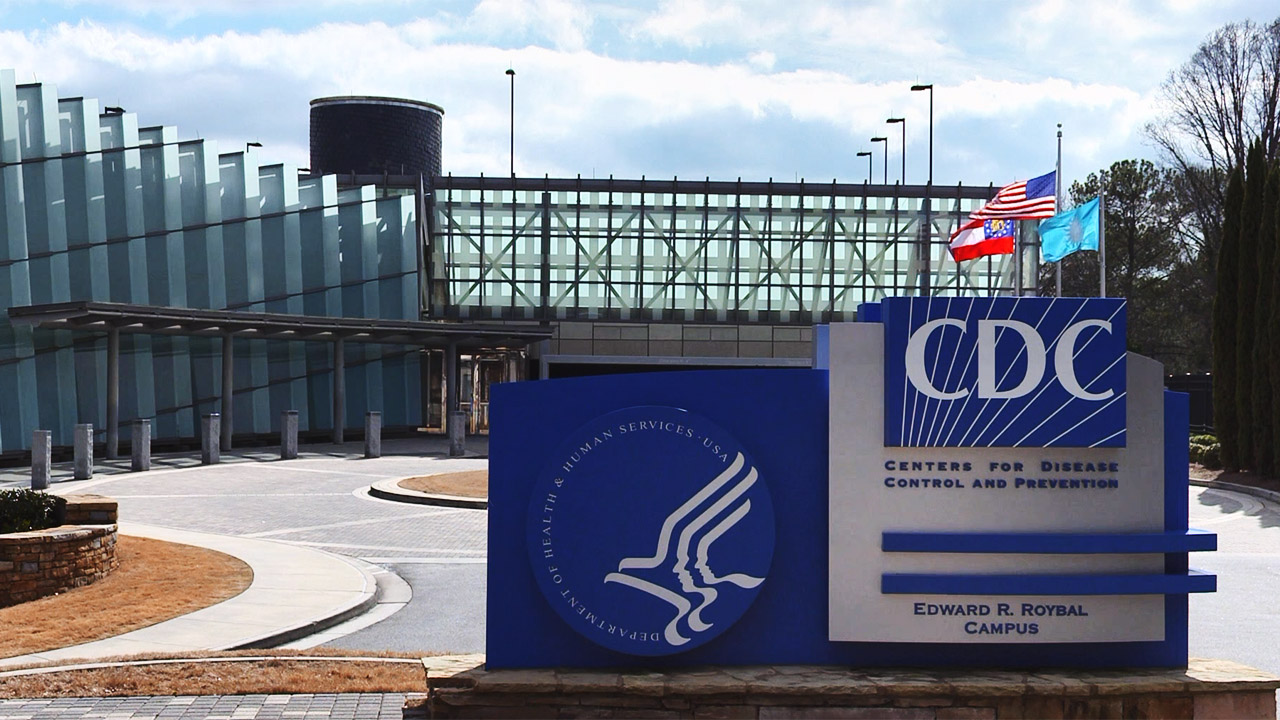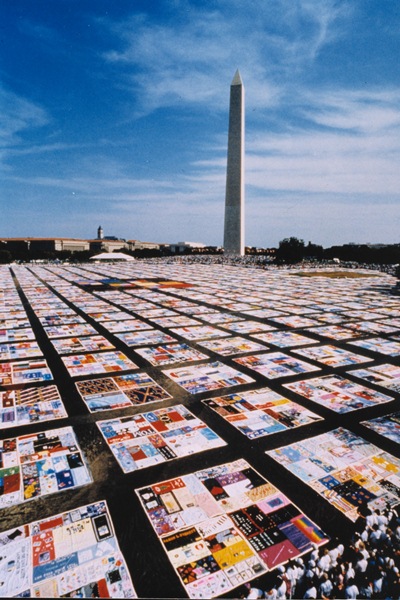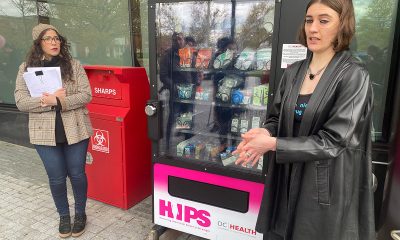Health
AIDS Memorial Quilt returning to D.C.
Will be on the National Mall from July 21-25

The entire AIDS Memorial Quilt will return to Washington for the first time in more than 15 years over the course of four days next month.
Many of the 48,000 panels will remain on the National Mall from July 21-25 to coincide with the start of the International AIDS Conference. More than 40 locations throughout the D.C. metropolitan area will display portions of the quilt through July 27. The Washington Nationals will showcase some of the panels on the outfield during the July 7 game with some of the proceeds going to the NAMES Project Foundation, the Atlanta-based group that cares for the quilt, and Whitman-Walker Health.
The NAMES Project will also feature 8,000 panels at the Smithsonian Folklife Festival from June 27-July 1 and July 4-8. Julie Rhoad, the group’s president, said her organization will offer quilting workshops, a performance stage and interactive exhibits during the 10-day festival that draws an estimated one million people to the National Mall each year.
“”The partnership with the Smithsonian Center for Folklife and Cultural Heritage is so important and this program–looking at creativity and crisis in the age of AIDS through the lens of the quilt — is quite extraordinary,” she told the Blade. “It’s very important for the quilt to return to the national stage with this festival program, which underscores the power of the arts as a tool for social, cultural and economic awareness and change.”
The NAMES Project has also worked with the University of Iowa to design a mobile app that will allow visitors to search for specific names, sign a digital guestbook and view the quilt from different angles. A 60” digital touch screen will allow people to access an interactive timeline of the history of both the AIDS epidemic and the quilt.
“This is an extraordinary kind of historical experience,” said Anne Balsamo, professor at the Annenberg School of Communication and Journalism at the University of Southern California who coordinated these digital initiatives. “It’s been 16 years since the last time it was laid out. The quilt has grown significantly since then.”
Cleve Jones and a handful of others began to make the quilt in San Francisco in 1987 as a way to memorialize those who had succumbed to AIDS. It was displayed on the National Mall for the first time later that year. The NAMES Project brought 8,000 panels to the Ellipse to commemorate National HIV Testing Day in 2004.
This year marks the first time the entire quilt will be on display in a specific location since 1996.
“It’s a pivotal time in HIV and AIDS,” said Rhoad. “It’s a pivotal time for the quilt. It was probably meant to be that we come back this year.”
Whitman-Walker Director of Development David Chalfant noted that he found a panel while the quilt was last in D.C. that had been made for a college friend whom he did not know had died. He said he was overcome with emotion.
“The wonderful thing about the quilt is that there are other people who are there to support you and let you know that it’s going to be OK,” said Chalfant.
House Minority Leader Nancy Pelosi (D-Calif.) is among those who have contributed to the quilt. She sewed a patch for the flower girl in her wedding who lost her battle to AIDS. Pelosi also participated in some of the quilt’s earliest planning meetings and helped secure the necessary permits from the National Parks Service to show it on the National Mall.
“The AIDS Quilt has brought healing and understanding to our country. Hundreds of thousands of people contributed to the quilt, millions have visited it and now it is coming back to Washington, D.C.,” Pelosi told the Blade. “We all pray for the day when we can say that AIDS is nothing but a terrible, terrible memory—a memory we will forever honor with the AIDS Quilt.”
The Centers for Disease Control and Prevention reported the first cases of what became known as AIDS in June 1981. More than 619,000 people have succumbed to the virus since the epidemic began. The CDC further estimates that 1.2 million people live with HIV in the United States.
“This is a time when science is identifying potential pathways to ending HIV and AIDS,” said Rhoad in reference to the International AIDS Conference. “It’s tremendously important for the quilt to be there to call on us all to take a look at this disease from a humanitarian perspective, to reach beyond the walls of science and say if we test and treat enough people we can begin to end this epidemic.”
Health
UNAIDS to commemorate Zero Discrimination Day’s 10th anniversary
UN agency urges global action to protect human rights

As the world marks the 10th anniversary of Zero Discrimination Day; UNAIDS is sounding the alarm on the increasing threats to human rights, calling for renewed efforts to protect the rights of all individuals as a fundamental step towards ensuring health for everyone.
Established by UNAIDS a decade ago, Zero Discrimination Day aims to promote equality and fairness regardless of gender, age, sexuality, ethnicity or HIV status. The progress achieved over the past years is now in jeopardy, however, due to rising attacks on the rights of women, LGBTQ people and other marginalized communities.
UNAIDS Executive Director Winnie Byanyima emphasized the critical link between protecting human rights and safeguarding public health.
“The attacks on rights are a threat to freedom and democracy and are harmful to health,” she said in a press release. “Stigma and discrimination obstruct HIV prevention, testing, treatment and care and hold back progress towards ending AIDS by 2030. It is only by protecting everyone’s rights that we can protect everyone’s health.”
Despite challenges, there has been notable progress.
At the onset of the AIDS pandemic more than 40 years ago, two-thirds of countries criminalized consensual same-sex sexual relations. They are now decriminalized in two-thirds of countries. An additional 38 countries around the world have pledged to end HIV-related stigma and discrimination, contributing to positive changes that include 50 million more girls attending school compared to 2015.
To sustain and enhance these advancements; UNAIDS urges global support for women’s rights movements, LGBTQ rights, racial justice, economic justice, climate justice and peace initiatives. By standing with communities advocating for their rights, the U.N. aims to reinforce the collective effort towards a more inclusive and equitable world.
Zero Discrimination Day is observed on March 1.
Events and activities that will take place around the world throughout the month will serve as reminders of the essential lesson and call to action: Protecting everyone’s health is synonymous with protecting everyone’s rights.
“Through upholding rights for all, we will be able to achieve the Sustainable Development Goals and secure a safer, fairer, kinder and happier world — for everyone,” said Byanyima.
Health
New CDC report finds transgender women at higher risk for HIV
More than 1,600 people in seven cities surveyed

The Centers for Disease Control and Prevention issued a new study report this week that revealed that restricted by employment and housing discrimination and lack of access to needed gender-affirming healthcare for transgender women increasing the risk of contracting HIV.
Researchers reviewed data from a 2019-2020 survey, the National HIV Behavioral Surveillance Among Transgender Women, which found that the demographics of HIV/AIDS have been disproportionally high, especially among Black and Latina trans women, who had experienced employment and housing discrimination coupled with lack of access to gender-affirming healthcare.
The Jan. 25 Morbidity and Mortality Weekly Report was based on data studies of more than 1,600 trans women in seven major urban locales. Participants from Atlanta, Los Angeles, New Orleans, New York, Philadelphia, San Francisco and Seattle were chosen by referrals from people and community-based organizations who knew or were part of the local population of trans women.
The study’s researchers noted: “Employment discrimination occurs at the overlapping nexus of poverty, homelessness, incarceration, health insurance, disability, food insecurity and survival sex work. These issues are interconnected.”
The study stated that trans women’s inability to access quality healthcare, including gender-affirming treatment or access to PrEP, and can expose them to potential incarceration as many turn to “survival sex work” and violence, which increases the risk of contracting HIV.
The study’s author’s pointed out: “When economically marginalized transgender women are refused employment, this refusal cyclically contributes to economic hardships. This analysis …demonstrates the importance of transgender women working and living with dignity and without fear of unfair treatment.”
Health
A Whole New Perspective on Well-Being
The Mather’s team recognizes that everyone’s wellness journey is completely unique to their life experiences and influences.

It’s easy to spot the distinctive, elegant silhouette of The Mather, a Life Plan Community for those 62+ opening this spring in Tysons, Virginia. What is not apparent to the naked eye is The Mather’s unique wellness philosophy, which is literally built into the community.
The Mather’s team recognizes that everyone’s wellness journey is completely unique to their life experiences and influences.
Nature is one of the important factors that contribute to well-being. So The Mather is incorporating biophilic design—a design approach to facilitate access to nature or things that replicate natural patterns. This can include interior spaces with sightlines to a garden, choosing natural wood and stone as interior materials, or incorporating fragrant flowers and plants indoors to spark memories and provide tactile opportunities such as gardening.

“Providing biophilic design within interior settings connects residents to the natural world,” says Mary Leary, CEO and President of Mather, the organization behind The Mather. “Research shows that a connection to nature provides positive benefits to mental states and overall well-being. At The Mather, biophilic design is the intersection of buildings and programs with nature in an urban setting.”
“The Mather is attracting a diverse group of older adults,” says Mary. “As a result, we aim to incorporate wellness practices from around the world, including Wyda movement theory of the Celtic Druids, which helps people achieve harmony with nature and contentment through mindfulness.” This holistic regenerative approach is similar to Qi Gong and yoga, while born in a different part of the world. Mather Institute has a special focus on mindfulness to support older adults’ practice of present moment awareness, which can lead to increased overall well-being, compassion, and joy.
A very different example of a wellness offering at The Mather is the Gharieni Welnamis spa wave bed, which uses computer-controlled vibrational therapy and audio frequencies to train the brain to relax. “The bed increases mindfulness, concentration, and creativity—all of which support our mission of creating Ways to Age Well,SM” says Mary.
These and other personalized ways to wellness will ensure that residents of The Mather can choose from seemingly countless ways to focus on their well-being. In other words, the sky’s the limit!
-

 State Department2 days ago
State Department2 days agoState Department releases annual human rights report
-

 Maryland4 days ago
Maryland4 days agoJoe Vogel campaign holds ‘Big Gay Canvass Kickoff’
-

 Politics3 days ago
Politics3 days agoSmithsonian staff concerned about future of LGBTQ programming amid GOP scrutiny
-

 The White House1 day ago
The White House1 day agoWhite House debuts action plan targeting pollutants in drinking water













